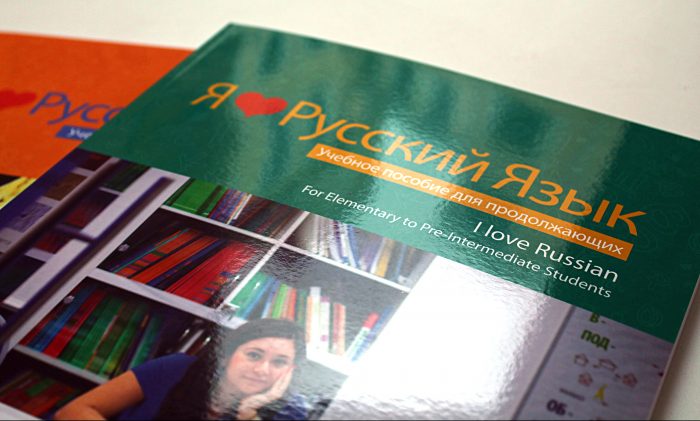
Learning a language is not an easy to thing to do, it isn’t something somebody else can do for you and the motivation to keep on studying has to come from you. However it’s inevitable that everyone at some point in the process starts to feel a little discouraged, and starts to feel that the task ahead looks a lot harder. How then to battle against this? Here are a few tips for getting through these difficult moments, because on the whole learning a language should be something you take great pleasure from doing!
This may seem like an obvious one, but it is also the most important. Everyone has a reason for why they started learning a language, whether you are learning it for work, whether you want to speak the languages of the countries you travel to or whether you just wanted to challenge yourself! Its very easy to get de-motivated because you’ve reached a particular bump that seems impossible to get over. Keeping the reason why you are doing it at the back of your mind will help you to get through these.
Sometimes the routine of learning a language can become a bit too repetitive, and this leaves you feeling unenergised. Why not change the way in which you learn vocab, you may be getting bored of a particular online platform so you could either change to another which offers a different method, or indeed forego the online part completely and start afresh with, for example, post-its and vocab lists stuck around your home. It may also be that you have set your expectations too high too quickly, so if after weeks of listening or watching the news in your foreign language you still can’t really understand anything, why not switch to cartoons for a bit, where the language is a bit easier. Change is always good if you find things are getting a bit monotonous. If you’re struggling for ideas, check out our article on unconventional ways to learn a language.
Learning a language may at times seem like a never ending task, there is no deadline or finish date and that in itself can lead to a lack of motivation. So why not set yourself a deadline? Tell yourself you will learn a certain number of words every week, or set yourself a list of topics you want to cover and a date for when you want to do this by. You could even look to take things up a level and enrol for an exam, such as the TELC or TRKI for Russian, which would definitely motivate you to make sure your language level was the best it can be before sitting the exam. But if exams aren’t your think, you could also look at spending a few days in a country where your language is spoken during your next holiday. This will also give you something to work towards.
This is admittedly one of the harder things to do, and is probably the thing I struggle with the most when learning languages. It is very hard to know just how much you have improved over a period of time, because you can’t compare yourself against you from 3 months ago. Or can you? If you record yourself speaking the language at the start of the process and at regular intervals, so that if say after 2 months you are beginning to fatigue a bit, you can then look back at the recording of yourself 2 months ago and see just how far you have come. This will almost certainly give you the confidence and energy to keep going forward.
Obviously the ideal environment for learning a language is in the country itself, where it is easiest to interact with it when doing day to day things. However this is not a luxury available to all, so how to do this even when you are at home? Try reading/watching the media that you normally read in the foreign language instead. If you’re going to watch a film, why not watch it in that language or with subtitles, you could do this with your favourite tv show too. Even better, try and watch films and shows filmed in the language you are learning, because you then get a better sense of the culture behind it. Why not try to experience their cuisine, or even join an expats group in your city to get some speaking practice. The more you experience the language day to day, the more you feel connected with it and its culture, which should hopefully motivate you to go even further!
Developed your own tips to staying motivated? Let us know in the comments below!

Students will be happy to learn that the Russian Government has today announced plans to make Russian language easier in an effort to simplify greater international engagement. …

In a previous post, we revealed that Russians don't really say “na zdarovje” when they toast. While the phrase has been popularised in English language media – and a lot of Russians will nod politely and clink glasses with you if you use it – it’s not something a native speaker would ever…

Improve your Russian while working as an expat? Mission possible! …

What could be a better way for Russian immersion than reading, especially when you read the books that you find interesting and that can give you a better idea of the culture of Russia? Co-founder of Liden & Denz, Walter Denz shares his experience on how reading Russian literature can improve your…

Learning a language is hard. Keeping it when you don't have classes is even harder. So this article is not about how to learn Russian, but how to maintain your Russian. …

Learning the Russian language can be a long, hard slog. Days, weeks, months spent poring over textbooks, attempting to understand the cases, crying over aspects, endeavouring to pronounce ы and щ. …

Many language learners desire to communicate well with native speakers of the language or those who speak it. I have always dreamt of talking more fluently and texting through social media with my Russian friends better. It is no exaggeration to say that good communication skill gives you an…

If you are already able to speak Russian, then congratulations! You are on a good way. But even if you are, let’s say, on level B2, you have probably been in situations with Russians, especially younger people, where you did not understand everything they said — either because they were speaking…